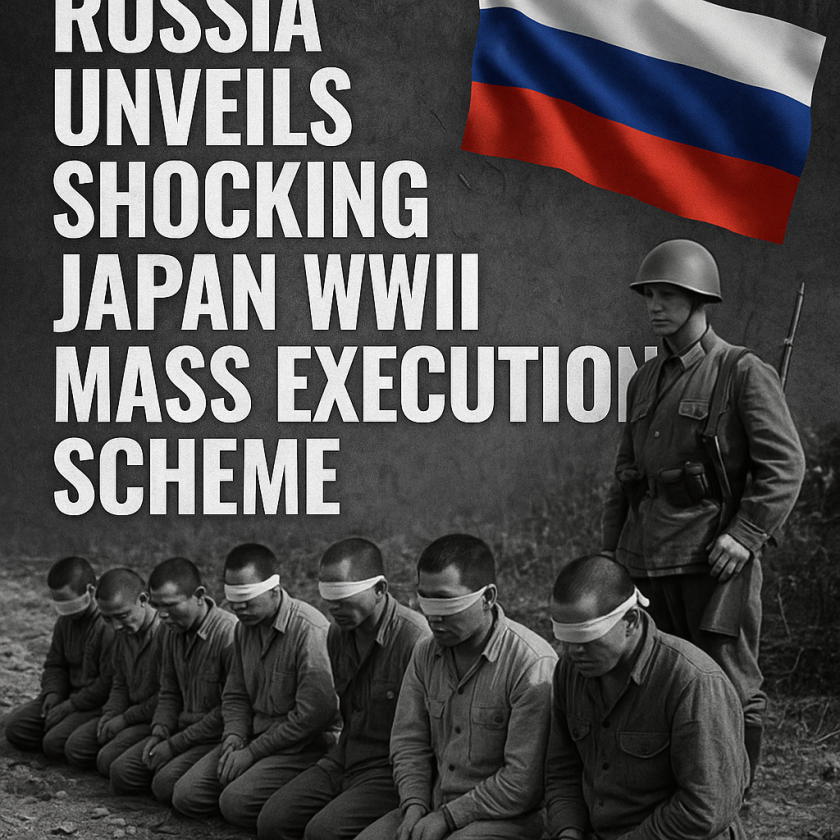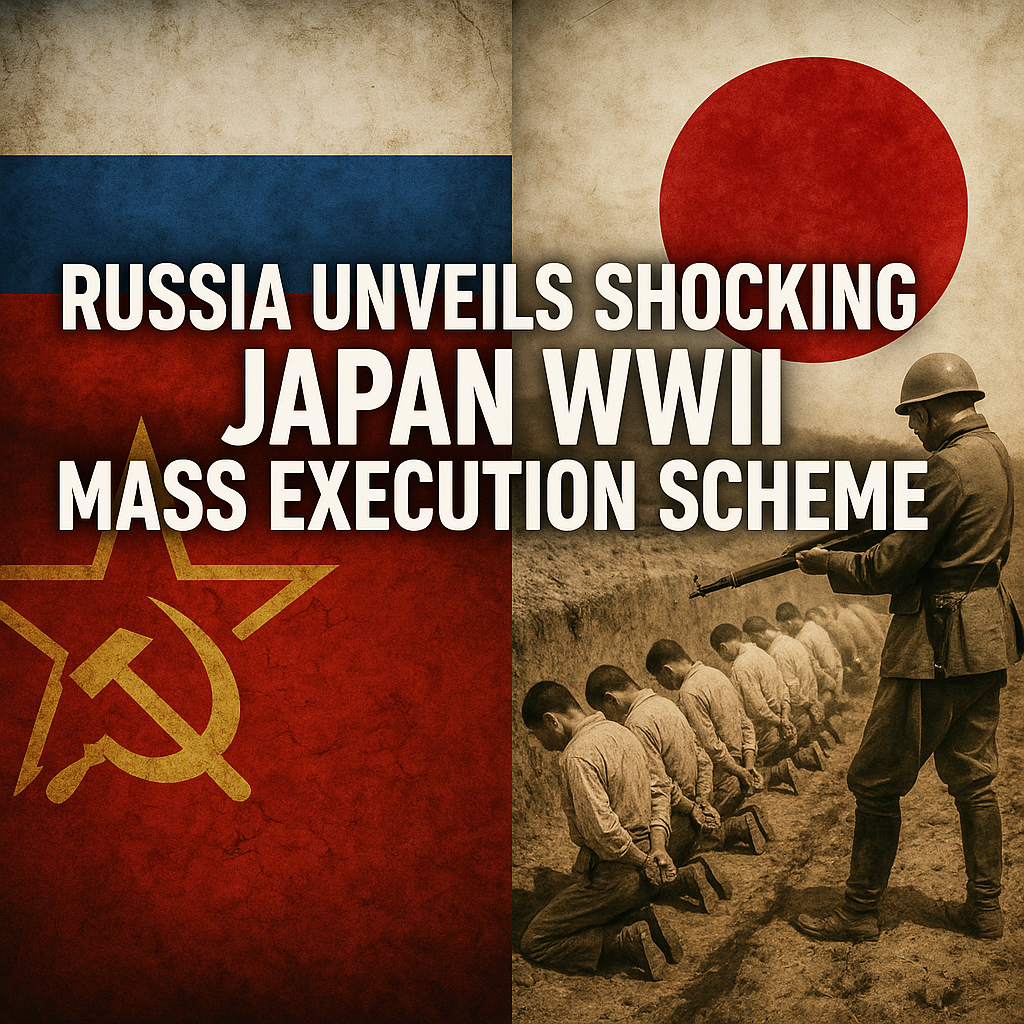Russia Unveils Shocking Japan WWII Mass Execution Scheme
Russia Unveils Shocking Japan WWII Mass Execution Scheme
The recent revelation of a WWII mass execution scheme involving Japan has sparked significant discussion and debate across international platforms. This topic emphasizes the complexities of historical narratives, national sensitivities, and the ongoing impact of wartime actions on contemporary political relations.
Historical Context and Recent Claims

To fully appreciate the implications of this recent unveiling, one must consider the historical context. As reported by multiple sources, Russia has claimed that Japan had devised a plan for mass executions in Manchuria during World War II. According to RT, documents uncovered by Russian historians reveal detailed strategies that were allegedly intended to eliminate not just combatants but civilians as well.
This information, while unsettling, raises questions about the validity and intent behind the disclosure. Some historians and political analysts suggest that presenting such narratives could serve to bolster nationalistic sentiments among the Russian populace or distill a collective memory that paints Japan in a particularly negative light. Meanwhile, others argue this could be an attempt to address historical grievances and seek accountability.
Diverse Perspectives on the Issue
1. Russia’s Stance: Russian sources, including state-run outlets like RT, emphasize the importance of these revelations in shedding light on Japan’s wartime actions. The articles suggest that acknowledging such plans is crucial for understanding the full scope of wartime atrocities in East Asia. As a result, the discourse surrounding these revelations often takes on a tone of moral righteousness.
2. Japan’s Response: Conversely, the Japanese government and media outlets have largely refrained from confirming these allegations, emphasizing instead the importance of mutual understanding and reconciliation. Some commentators suggest that the timing of these revelations could affect Japan-Russia relations, especially concerning territorial disputes over the Kuril Islands.
3. International Consensus: Commentary from global analysts suggests a more nuanced understanding of WWII’s complex narratives. Many historians advocate for a careful evaluation of these kinds of claims to avoid supercharging existing hostilities. This perspective argues that all nations involved in WWII, including Japan and Russia, bear some responsibility for wartime atrocities, and focusing solely on one nation’s actions may hinder genuine reconciliation efforts.
The Broader Implications for Japan-Russia Relations
The re-emergence of such historical claims is never merely academic; it has real-world ramifications for international diplomacy. As tensions fluctuate between Japan and Russia, particularly over disputed territories, historical narratives can be weaponized or used to bolster nationalist movements on both sides.
– Economic and Political Ties: Historically, Japan and Russia have sought to strengthen cooperation on issues ranging from energy supply to regional security. However, reviving contentious historical grievances may complicate these efforts, potentially leading to setbacks in diplomatic engagements.
– Public Sentiment: Using historical perspectives to shape public sentiment can be a double-edged sword. In Russia, such revelations may stoke nationalist fervor, reinforcing narratives of victimhood. In Japan, it can elicit defensiveness or even provoke counter-narratives intended to downplay wartime aggression.
The Call for a Balanced Discourse
Given the emotional weight that WWII carries, an objective examination of these allegations is essential. Experts argue for a more nuanced discussion that involves recognizing the complexities of wartime actions, as well as highlighting instances of resilience and forgiveness that can pave the way for improved relations.
The geopolitical landscape is fraught with tense legacies, and understanding these historical narratives will require transparent discussions. Both nations investing in a reconciliatory approach that embraces a comprehensive view of history could ultimately promote a more peaceful coexistence.
Conclusion: Embracing Nuanced Narratives
As Russia unveils shocking claims regarding Japan’s WWII era, the need for a balanced and nuanced discourse becomes imperative. This topic underscores the challenges of navigating historical narratives that are often steeped in emotion and national pride. The path forward relies on open dialogues, sincere attempts at understanding, and an acknowledgment of shared histories.
In the end, confronting difficult pasts can lead not just to closure but to constructive relationships between nations. Only through such measures can both Russia and Japan hope to craft a future built on trust instead of historical grievances.






































